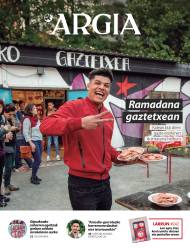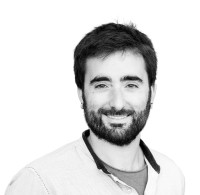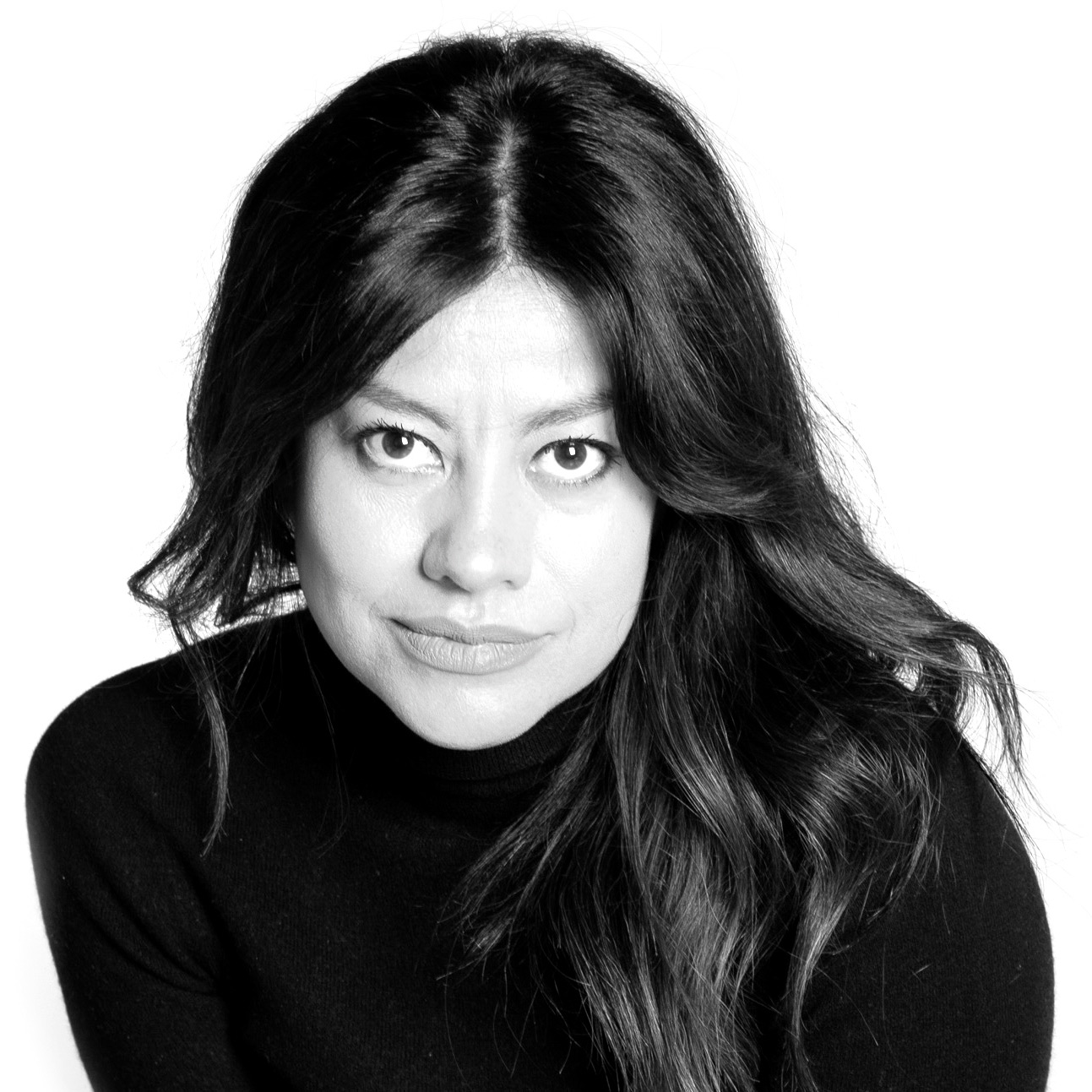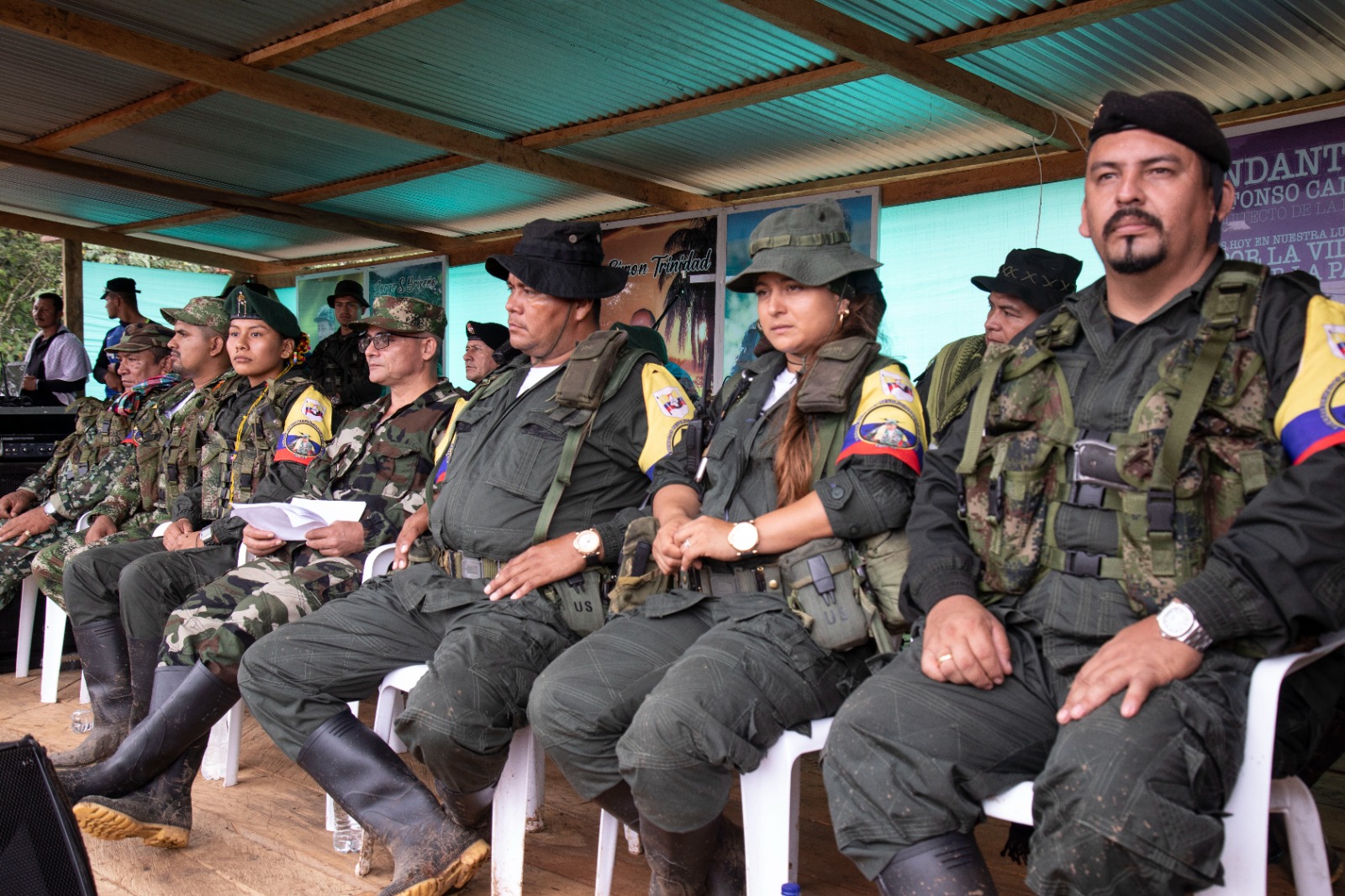The Government of Colombia has kidnapped, murdered, dressed in guerrilla uniform and presented more than 10,000 people as killed in the conflict
- Colombian sociologist and researcher Omar Rojas Bolaños (Bogotá, 1961) became lieutenant colonel of the Colombian National Police. Out-of-court cases in Colombia 2002-2010: Blind obedience on fictitious battlefields (Extrajudicial executions in Colombia 2002-2010: Blind obedience in the fictional battlefields) has denounced over 10,000 cases of ‘false positives’ or police mounts during Álvaro Uribe’s mandate: the military kidnapped poor peasants, took them to the jungle, killed them in cold blood and put guerrilla uniforms on the corpses and put weapons in their hands. He has had to flee from Colombia.
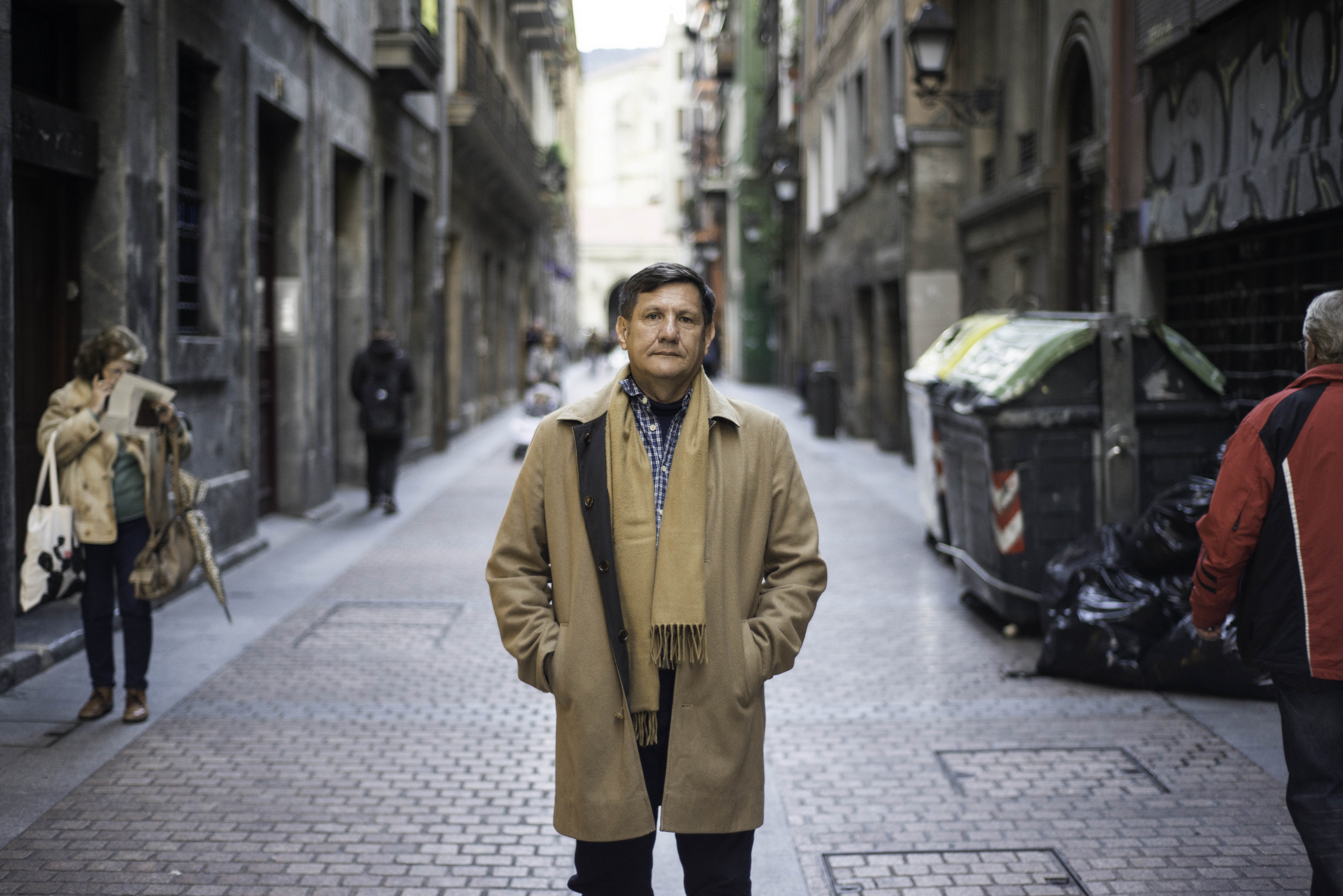
Euphemism seems to be the name of “false positives” that you so often use. Where did it come from?
It is a concept invented by the military to justify itself, because they are not illegal executions, but state murders. The execution consists of the murder of a person previously identified or accused by a State agent. On the contrary, killing people who are not part of the conflict and have not been investigated before, because they belong to the lower class, are state killings.
Are all cases of Álvaro Uribe's mandate?
We have received eight years of Uribe between 2002 and 2010, but that does not mean that it has not been done before. From 1994 to 2002, 664 cases of Andrés Pastrana ' s mandate have been investigated. When Uribe announced the results of the Democratic Security Policy (EPPK), he cited the "casualties" of 19,405 terrorists. Then, when the International Court of Justice and the Human Rights Groups asked the State of Colombia in 2014, the government only talked about 15,700. The Attorney General’s Office has already recognised 4,475 cases, but in our investigation more than 10,000 have been found.
It seems impossible to hide so many murders, how has it happened?
With a sample of 1,176 cases it was found that 70% of the deaths in those fake battlefields were peasants, 13% indigenous, 6% workers, 3% functional diversity, 3% soldiers and police who refused to obey... Only a few had participated in or had a criminal record in the guerrillas and paramilitary groups. At one point, the Government wanted to explain the false positives as "social cleansing" of the enemies of the State, but the data show that the victims were chosen by another criterion: from the low and unprotected classes; by choosing the victims, those who did not have anyone to ask about them were preferred.
"In the choice of victims, they prioritized those who didn't have anyone to ask for them."
For what purpose were so many murders committed?
In the research we have shown that false positives are a result of the Democratic Security policy promoted by Uribe, which set objectives of concrete results for the military. The current Vice-President, Marta Lucía Ramírez, stated that she would assess the military on the basis of the results. It depends on the number of terrorists killed. At the time, despite the fact that Colombia was unconstitutional, he was sentenced to death. The executioner was anyone: policemen, soldiers, jailers ... Under the military concept of "internal enemy", the Democratic Security policy established a policy of objectives and rewards that allowed the number of terrorists killed to be shifted to show that they were winning the war.
What reward did the soldiers who committed massacres have?
In exchange for each murder, a soldier charged two million pesos (around 500 euros a year today). When a group of soldiers committed more than six killings, the group received 30 million; if a gun or a rifle was presented captured to the suspected terrorists, another 500,000 pesos ... In addition to the awards, there were other awards: medals, scholarships, trips abroad and others.
Where did I get the money from those prizes?

On the one hand, the item called ‘Special Army Coins’, but also Plan Colombia. The latter is the pact signed in 1999 by the Uribe Government with the United States, which established policies against drug trafficking and guerrillas.
Was there coordination or strategy in case of false positives?
Yes, none of the false positives happened randomly, they were the result of a military plan. Previously, in some meetings, the military was assembled by area and the operation was prepared, coordination was established and instructions were given to transfer the victims to the place where they were to be kidnapped and killed. Meanwhile, they infiltrated the community to generate anxiety and fear of the guerrillas. Soldiers who had to intervene in the operation were also prepared for a convincing excuse.
Didn't they do research?
Military justice, instead of investigating, instructed soldiers to make the story credible. We have gathered in the book how once the military judge came to the place of such a massacre. Among the dead, a person was still alive, and when he saw the judge, he began to ask for help with screams and asked for help. The judge then turned his back and, when he said "I haven't seen anything," he turned to the military to finish their work. They were looking at another place, literally.
Was there an internal denunciation of the army?
The first to report false positives were lower-class military personnel, but the accusations of the elders did not echo. The event had to be transferred to international agencies, as the complaints lodged by the Ministry of Defence were not met.
"None of the false positives happened randomly, they were the result of a military plan."
How did the massacre begin to emerge?
The first public denunciation of these events took place in Soacha in 2008. In this small town near Bogotá, the Army kidnaps eighteen young people, takes them to the Santander Department and kills them, takes them in uniform and presents them as members of terrorist groups. Their mothers started an investigation and made a report of fame in Bogotá. Most of the times they occurred far away from the cities, but the Soacha guard Colombian society. However, the first major false positive massacre took place six years earlier, two months after Uribe joined the country’s presidency. Colonel Publio Mejía of the La Popa battalion on the coast of Colombia killed eighteen people in October 2002. Among the deaths were people from the FARC, the ELN, paramilitaries and citizens, who were confused and presented as guerrillas. The false positives began with Uribe's Democratic Security policy, due to the direct relationship between the army and the paramilitaries. I do not say it myself, the judges say it categorically in Colonel Mejía’s ruling.
Did you know about this when you were in the police?
In 2008, I was sent to a city on the coast to help a group of policemen monitor the elections. While I was there, several judicial police in the area asked me for help to get an informant out, because they were suspicious of the other police officers present. I offered them my help, having verified their honesty. After a while, without remembering him, the Soach affair was brought forward. I started tying strings, and I saw that the man who had helped me out was a victim of a false positive.
And then he got to investigate?
Since then, when I was in the police, I began to gather all that was said in the media about false positives, by instinct sociologist. Once enough materials were gathered, we approached the university and began to shape research. The research work has been carried out at the University of Santo Tomas and the book that includes it, with the collaboration of the Fray Alonso Institute of Zamora. This work has gone through all the edges of the university. We've been researching nine years.
What method have you used for the research?
Although there are data and numbers in the work, it has been rich by the method, as it is a qualitative research. We have had the flexibility to understand the phenomenon from the work of historians and sociologists, with the help of a team of psychologists. We delve into the subjectivity of Colombians to ask them what are false positives for them. We formed five groups: 50 active military personnel, 50 other reserve military personnel and policemen, relatives of members of the armed forces, relatives of victims and, finally, citizens unrelated to the account. We did structured interviews, with questionnaires.
"For many Colombians, false positive killers are the best military, the best neighbors, the best children..."
You try to understand how a multitude of horrific killings have been covered up.
The work has yielded interesting results. For many Colombians, false positive killers are the best military, the best neighbors, the best children... They show a worrying lack of social sensitivity towards the other. The Democratic Centre of Uribe denies these murders, as some still deny the Holocaust in Germany. This is a great danger for humanity, not only for Colombia, which sets a precedent for tomorrow and tomorrow to be repeated elsewhere.
Does public opinion not want to know anything either?
If a single Colombian is asked about false positives, then surely what the government said is repeated: Others will tell you that Democratic Security is an invention of the enemies of politics, of the rebels, of some corrupt apples of the army, which was a social cleansing, for some guerrilla murders to blame the government...

There is no reason to regret.
No, it is very painful to find in Colombia people who have been convicted of false positives, who feel no remorse for having killed 20, 30 or 40 people. They say it in public quietly and they say that they would do it again. Asked why they did so, he said that "we cannot allow castrochavism, communism, to seize power in Colombia". All this is based on the doctrine of the internal enemy, which says that the enemy can be any Colombian. They have been taught that this inner enemy is made up of the left, the communist and the human rights activist. Those who question the state are identified as terrorists, and terrorists should not be arrested, but destroyed.
What was the reaction of the State of Colombia after denouncing the killings?
The State has tried to plug the problem rather than try to solve it, misleading the victims’ allegations, manipulating reports or delaying decisions, among other things. Through the expansion of the military field, he wanted to bring such cases to military justice. The lawyer pays the murderers and the families of the victims, often not even accepting the allegations of ill-treatment.
"They have been taught that this internal enemy is made up of the Left, the Communist and the human rights activist. Those who question the state are identified as terrorists and terrorists should not be arrested, but destroyed."
Have you received any threats?
Yes, the military has pointed out to me as a traitor for having collected, organized and presented to the public the facts of what happened. Soachan dedicated himself to investigating the brother of a dead man and also to him. We were very attentive during the investigation, just in case we interviewed the military separately. At some point they realized that we were researching, but we were able to do the work without any major problems. In April 2018, when we started presenting the work at the universities, the campaign against us, on social media, began by saying that the research was promoted by the FARC and that I was from the FARC. We have had to take security measures and, seeing that my life was in danger, I have been forced to leave Colombia.
What are your forecasts now?
I have been thinking of returning to Colombia, but the prosecution has ignored the allegations I have made. I asked for protective measures from the police and they didn't give them to me. At the moment there are no minimum conditions for me to return to Colombia.
Do you think that justice will ever be done in Colombia?
I don't want to be pessimistic, but false positives continue to occur, under the name of "military mistakes" since 2010. Why are they still happening? Because no one is able to hold the institution accountable. In total, more than 6000 military personnel have participated in false positives. It is time for the military to start talking. Some have begun to confess, but the extreme right is afraid and, as a result of the peace dialogues in Havana, has begun to manipulate the Special Jurisdiction for Peace created to investigate this type of crime: they have already got nine of their rope judges into the room,... They do not have to demand a commitment that what happened to the shooting should not happen again, but to the institution that did it.
With the new government, it does not seem that things are going to get better.
The new government is the return of the Democratic Security policy. Street demonstrations have begun to be criminalised, whatever the motive for the protests, and over the past two years more than 400 political and social leaders have been killed. Already 80 former FARC fighters who had been left by arms have died and the Government has not given more details. If this does not change, we will return to the false positives of the 2002-2006 season.
I have recently had the opportunity to see the latest work by Pierre Carles, a committed documentary author. Under the name of Guérilla des FARC, l'avenir a une histoire (FARC guerrilla, the future has history), proposes a renewed account of the armed conflict that has lasted... [+]
Uwa, kamsá, tukuná, uitoto, tikun, embera, nasa/yuwe, nuka, sikuani, siano, macuna, yuruti, kichwa, achagua, bora, truncar. These are some of the languages spoken in Colombia. Unfortunately, when I lived in Colombia, in Cundinamarca, I did not have the opportunity to learn our... [+]
International Migrants Day is celebrated on 18 December. Last year, an institutional event was held at the Alhóndiga in Bilbao in cooperation with the social partners and I was invited to participate. There I had an unbeatable opportunity to meet new creators and, above all, to... [+]
An indifferent people! How different your destiny would be if you knew the price of freedom! But it's not too late. Although I am a woman and young, I now have the courage to face death and I would have it a thousand times more, do not forget! ".
With these words, Policarpa... [+]









